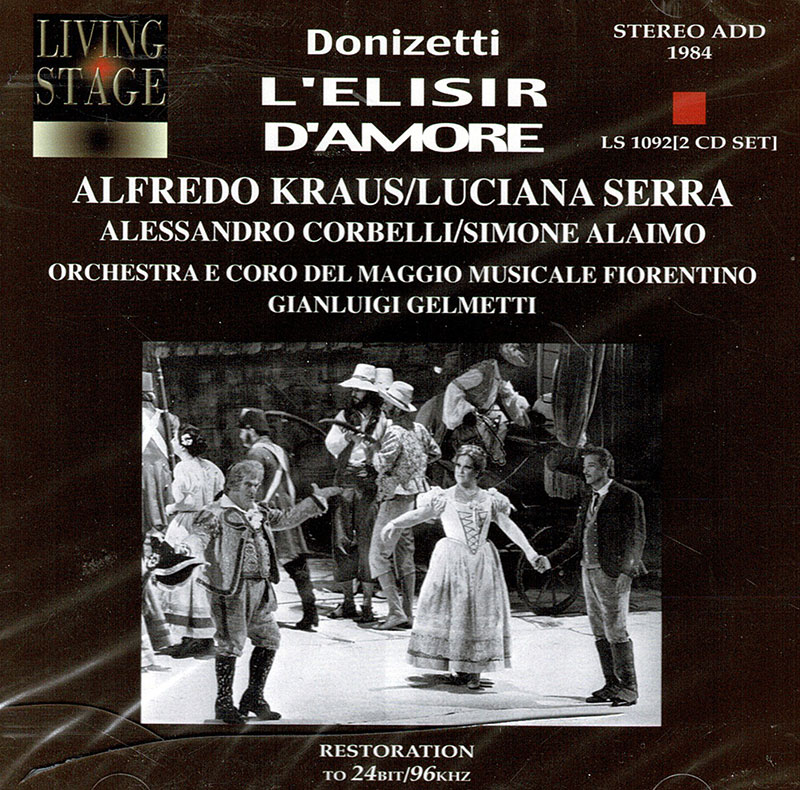Logowanie
OSTATNI taki wybór na świecie
Nancy Wilson, Peggy Lee, Bobby Darin, Julie London, Dinah Washington, Ella Fitzgerald, Lou Rawls
Diamond Voices of the Fifties - vol. 2
Tylko 1000 egzemplarzy!!!
DVORAK, BEETHOVEN, Boris Koutzen, Royal Classic Symphonica
Symfonie nr. 9 / Wellingtons Sieg Op.91
nowa seria: Nature and Music - nagranie w pełni analogowe
Petra Rosa, Eddie C.
Celebrating the art and spirit of music - vol. 3 - Pure
warm sophisticated voice...
Peggy Lee, Doris Day, Julie London, Dinah Shore, Dakota Station
Diamond Voices of the fifthies
Tylko 1000 egzemplarzy!!!
SAMPLER - STS DIGITAL, Buddy Tate, Milt Buckner, Walace Bishop
Jazz Masters - Legendary Jazz Recordings - v. 1
proszę pokazać mi drugą taką płytę na świecie!
Chesky! Niezmiennie perfekcyjny
Winylowy niezbędnik
ClearAudio
Double Matrix Professional - Sonic
najbardziej inteligentna i skuteczna pralka do płyt winylowych wszelkiego typu - całkowicie automatyczna
DONIZETTI, Alfredo Kraus, Luciana Serra, Allesandro Corbelli, Coro e Orchestra di Teatro Comunale di Firenze, Gianluigi Gelmetti
L'elisir d'amore

“The matter with Kraus is that he inaudibly makes tension grow before the emotional climaxes of the operas so that when they finally arrive, the audiences are unconsciously frenzied, awaiting for what is to come. A leading lyric tenor of his generation, Alfredo Kraus parlayed his vocal and artistic gifts into one of the longest and best managed careers in recent memory. Always careful -- both in choice of roles and in the regulation of his performing schedule - not to overextend himself, he achieved a degree of consistency and longevity that kept him active professionally well into his sixties, always applauded for his youthful tone and delivery. Among his vocal assets were an admirable top extension - which included an enviable D above high C - a warm tone, and an instinctive feel for the shape of phrases, especially in French repertory. He, Carlo Bergonzi, and Nicolai Gedda were noted for their style, refinement, and musicianship in an era when, especially in Italian opera, tenors often neglected such qualities. He starred in the title role of Viladamot's 1959 film GAYARRE, a biography of the famous Spanish tenor. While he studied music as a youngster, Kraus had no intention of becoming a professional singer, until friends and family began encouraging him to do so. In taking up vocal studies, Kraus avoided heavier repertory and focused on the bel canto ‘tenore di grazia’ parts that he knew were right for his voice. At the age of 28, he won first prize at the Geneva Competition, and a representative of the Cairo Opera, who was present at the auditions, offered him the role of the Duke in RIGOLETTO; he made his professional opera début at the Cairo Opera in that role in 1956. His great success there was followed by equally gratifying appearances in Venice, Turin, and Barcelona, and in 1958, he appeared in LA TRAVIATA with Maria Callas in Lisbon - the ‘Lisbon TRAVIATA’. In 1959, he sang Arturo in I PURITANI for the first time, made his La Scala and Covent Garden débuts, followed by his Metropolitan Opera début in 1965 and Salzburg début in 1968. In Rome, he sang his first WERTHER, a role that, like Arturo, was to become one of his signatures. Aside from his fine sense of the musical nuance and phrasing, his portrayal of the mentally unstable, morbid, masochistic, and manipulative character of Werther has been acclaimed as one of the most effective and insightful readings ever. During the 1980s, he began to limit the number of his performances even further (at the peak of his career, he never sang more than 50 in a year), and started to turn his attention to teaching, although even in the 1990s he still had an active performing schedule. Kraus died on 10 September, 1999, after an extended illness.” - allmusic.com “Luciana Serra is known for her vocal acrobatics; her name has been mentioned in the same breath as Joan Sutherland’s. She is superb from the off....small wonder she brings the house down....If there is one vocal reason to obtain this set, it is Serra.” – Colin Clarke, Web International





























